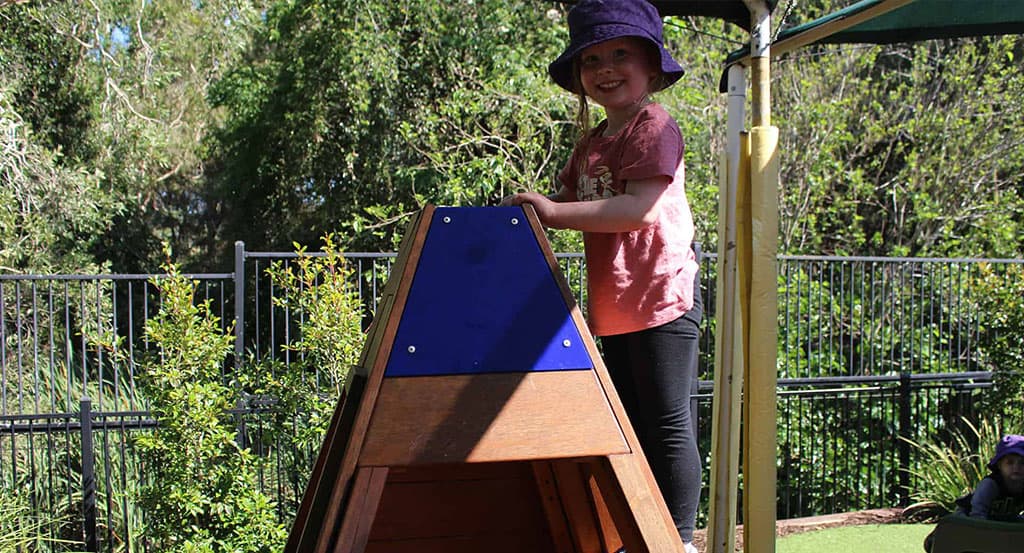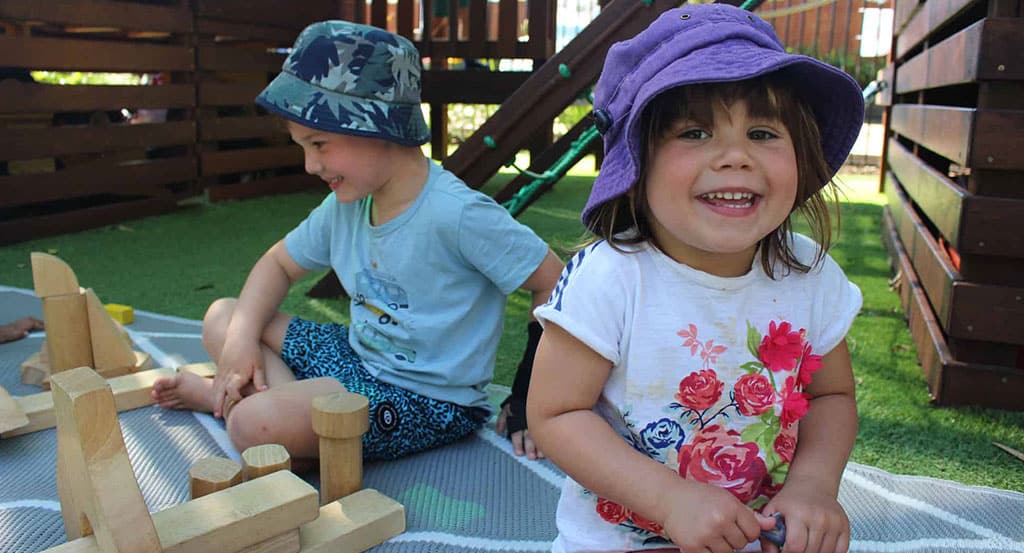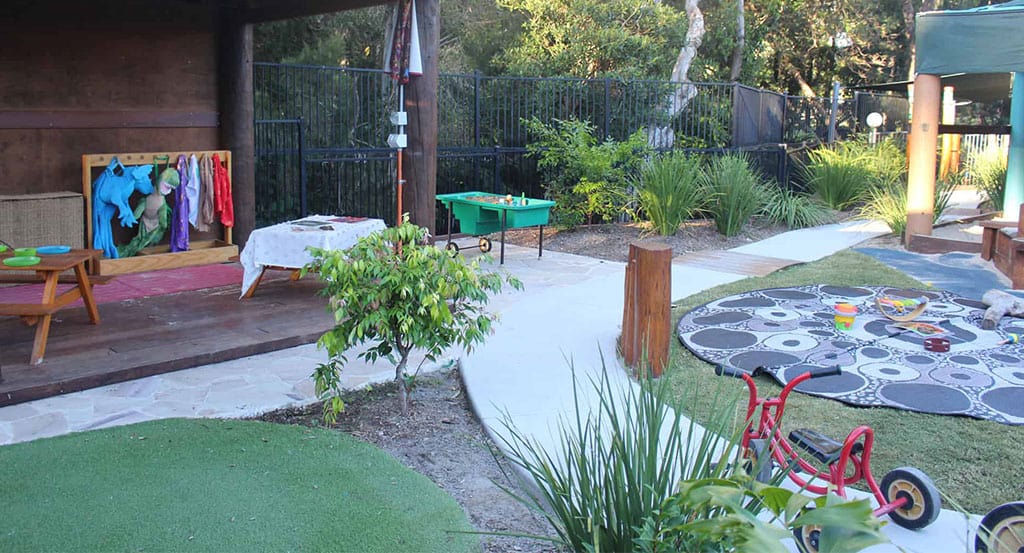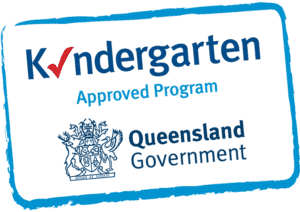Our centres are a strong advocate for the 3A Abecedarian Approach to learning, a set of evidence based strategies that have been shown to enhance educational outcomes.
This approach spans from birth to school entry and places a priority on high-quality adult-child interactions and children’s language acquisition. The 3A Approach has been effectively used in childcare, family child care, playgroups, and home visits.
The 3a Abecedarian Approach is based on the four interconnected elements for supporting and stimulating children’s development , they are Language Priority, Learning Games, Conversational Reading and Enriched Caregiving.
Language Priority
Language is a main focus of the program because it allows children to organise their thoughts and explain their ideas. It gives them a means to express their feelings and the tools they need to interact with peers and adults.
Children benefit from the approach because they gain more interaction and have an opportunity to widen their use and understanding of vocabulary. Language provides plentiful practice in listening, talking, responding, and taking turns. This helps stimulate children’s language, cognitive, social, and emotional development. Language encompasses both expressive and receptive skills in both verbal and nonverbal (e.g., print or body language) forms.

Through language children develop memory, understand number concepts, and learn shapes and colours.
Some examples of activities that build language skills are listed below:
- Ask the child to do an activity and then talk to them about what they did.
- Read a book, thereafter ask the child if they can find a picture that you describe in the book.
- Point out an object in a book, then ask the child if they can show you that object, and then ask them to name it.
Eventually, talking about and naming things from the colour of clothes to what they are wearing and eating will come naturally to the child. This leads to creating conversations and asking questions. As an Abecedarian-focused centre, we use this approach every day.
Its very important for children to understand language because this makes it easier for them to learn.
Our educators use language to enrich our caregiving, including talking children through all the activities they do throughout the day, from washing hands, to eating and whilst playing.
Conversational Reading
The 3a Approach encourages the adult and child to go ‘back and forth’ in conversation. There are three main levels in conversational reading, the first level is seeing, then showing, then saying.
We have a conversational reading every day with every child.The 3a Abecedarian Approach states that a child is never too young to be read to, never too young to engage in a conversation with their parents or caregiver, and never too young to transfer language to. We teach children that books have beginnings and endings.
Children gain an understanding of the way and direction a book is read which in turn can help them understand which direction to write their words.
Learning Games
When playing games, children become more engaged in their learning, taught content is reinforced and class positivity is increased.Playing games in the classroom increases a child’s overall motivation. By playing games, students become more motivated to learn, pay attention and participate in set tasks. Games help students to become a part of a team as well as take responsibility for their own learning.
Most games require problem-solving strategies and planning. By applying a range of strategies in a game, students are able to use their working memory to solve problems, enhancing their understanding on the taught concepts by creating practical applications. A simple game used in the Abecedarian Approach is talking with children about their likes and dislikes. At our centre we share ideas with the parents on the type learning games that can be developed by yourselves.
We also have a host of physical learning games at our centres , which we play with regularly with the children. We are happy to share these games with our families.

Enriched Caregiving
The Enriched Caregiving element of the Abecedarian Approach encourages adults to enhance the basic level of care they provide by emphasizing the social/ emotional aspect of it as well as incorporating explicit educational content into it. As mentioned above, parents and caregivers increase the value and power of many daily routines and transitions by recognizing and planning for them as ideal opportunities for rich, personalized interactions for young children. Enriched Caregiving gains its strength from its natural context, individual child focus, and many repetitions.
Working with families is a core part of the Abecedarian approach.
This program is so beautiful as it aims to support families to grow in confidence as their children’s first educator. Families do benefit by learning to engage with their children in a similar way as we do, watching their children become more confident in what they do and say.
We love this program as families learn to understand their child, have the confidence to share the learning games with their children, and while the games might seem like common sense to us as educators, they may be new and useful tools for the parents.
After a number of studies conducted in various countries (https://link.springer.com/article/10.1007/s13158-019-00247-2/tables/1) over the years, the results are as follows.
Pre school research findings showed positive effects on cognition as early as 18 months of age.School research showed improvement in reading and math achievement that persisted throughout the entire period of school enrolment. Long-term benefits for the financially disadvantaged sample included a fourfold improvement in their rate of university graduation. Adult-age follow-up also disclosed unexpected benefits in life course variables including better health, more equitable social decision making, and reduced criminal behavior. Journal of Early Childhood.
There is no set method of implementing this approach and each implementation needs to be customised to suite the children’s local environment. We believe that long term commitment and dedication from leadership is essential for the success of the program to show positive results in the development of children in the community at large.




